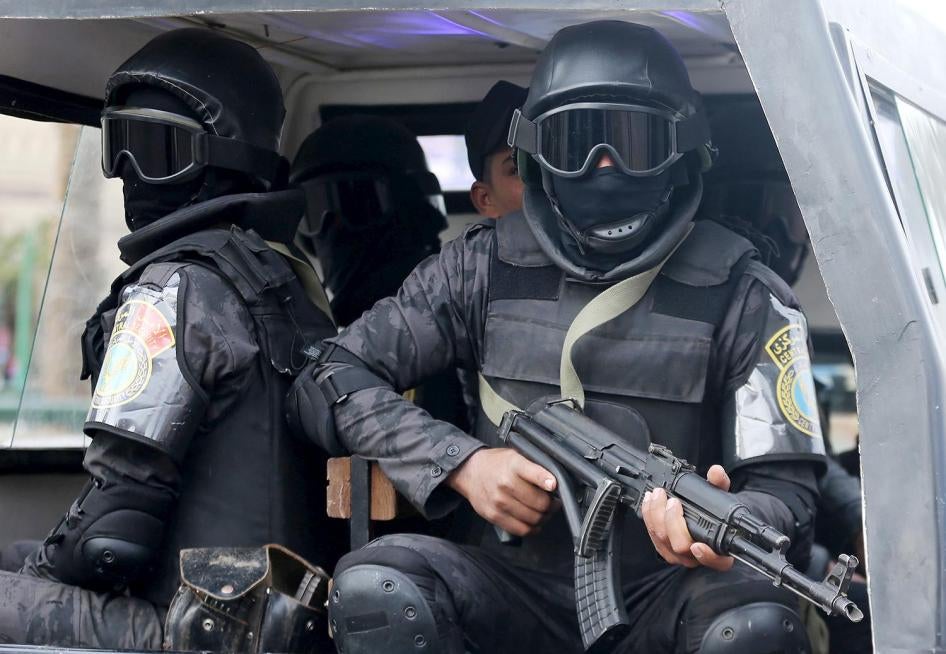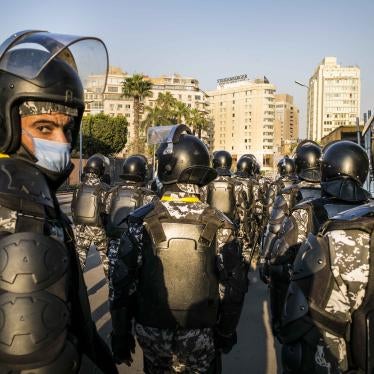In his Preface to the annual FCO report on Human Rights and Democracy this year, Foreign Secretary Boris Johnson said that “promoting the values that Britain holds dear is not an optional extra, still less a vainglorious addition to our diplomacy: it is keeping with centuries of tradition. This is part of who we are”.
Fine sentiments. But ones that the UK too often ignores or marginalises in its relations with key countries around the world. This was demonstrated with disturbing clarity this month in the case of Egypt.
President Abdel Fattah al-Sisi, who led the Egyptian military’s forcible removal of Mohamed Morsy, the freely elected president, in 2013, heads a country gripped by an unprecedented human rights crisis – the worst for decades. In the months following him seizing power, Egyptian security forces killed huge numbers of people. Human Rights Watch documented the killing of at least 817 and likely more than a thousand protestors in Cairo’s Rab’a al-Adawiya Square on a single day - August 14, 2013 – more than were killed at Tiananmen Square in 1989, and a potential crime against humanity. Nearly four years on, no government official or security officer has been held to account for this crime and the man effectively in charge of the security forces at the time is now the country’s elected President.
In the last four years under Sisi, upwards of 60,000 people have been imprisoned, protests are effectively banned, and the country’s largest opposition group, the Muslim Brotherhood, is outlawed and those alleged to be members hunted down. Egypt’s courts have sentenced hundreds to death - including former president Morsy – and thousands of civilians have been sent to military courts. The government has severely restricted freedom of expression and emasculated the work of international and civil society groups.
If all this wasn’t awful enough, new research we published just this week confirms that the country’s security forces are responsible for widespread and systematic torture in police stations and national security offices. We interviewed several former detainees, and their testimony is chilling. They told us that torture sessions began with security forces using electric shocks on a blindfolded, stripped and handcuffed suspect, while slapping and punching him, or beating him with sticks and metal bars. If the suspect fails to give the officers the answers they want, interrogators increased the power and duration of the electric shocks, often to the suspect’s genitals. Detainees were also forced into stress positions for long periods of time so as to inflict excruciating pain.
In the northern Sinai Peninsula, fighting between Egyptian government forces and an affiliate of the armed extremist group Islamic State has dramatically escalated, with large-scale rights violations by both sides. Egyptian forces are involved in the disappearance of hundreds of civilians, mass arbitrary arrests, torture, deaths in secret military detention and extrajudicial killings.
In the face of this unprecedented crisis, and inspired by Boris Johnson’s emphatic assertion that “promoting human rights is an essential aim of the foreign policy of a global Britain”, one would expect a strong and principled UK government response to the grave and worsening rights situation in Egypt.
But far from it. In an article in the Egyptian paper Al-Ahram two weeks ago, the FCO Minister for the Middle East, Alistair Burt, laid out actual UK government policy towards Egypt. Burt is gushing in his support for the Egyptian government’s counter-terrorism efforts and makes no criticism whatsoever of the brutality of its operations in Sinai, although terrorism and how best to address it is the major theme of his article. And there is no acknowledgement that the Egyptian government’s approach - what Burt chillingly describes as striking “with a fist of iron” - is fuelling not weakening radicalisation. It is as if the UK has learned nothing from the last two decades of counterterrorism operations.
Nor does Burt make any mention of the multiple other human rights crimes engulfing the country. Nothing on torture. No mention of mass death sentences. No reference to the ferocious crackdown on free expression. He also strongly attacks the Muslim Brotherhood – an international Islamic political movement - and links it to extremism, even though the UK government’s own review of the group found no evidence of links to terrorism. As the Conservative commentator, Peter Oborne, points out: “Burt’s comments have given Sisi carte blanche to continue his brutal suppression of the Brotherhood”, in a way that will delight the Al-Sisi regime and other autocrats in the region, including in Saudi Arabia.
UK policy towards Egypt, as set out this month by Alistair Burt, bears no relationship to the sort of values-driven foreign policy articulated by Boris Johnson just three months ago and championed by Bright Blue. If the UK is serious about human rights – as it should be – it needs to urgently clarify its policy towards Egypt and elsewhere. It needs to affirm beyond any doubt that Britain stands for certain fundamental values in the world – and not merely for cold and cynical realpolitik, which diminishes the UK’s global standing and will deliver yet further misery, conflict and repression to the people of Egypt.









